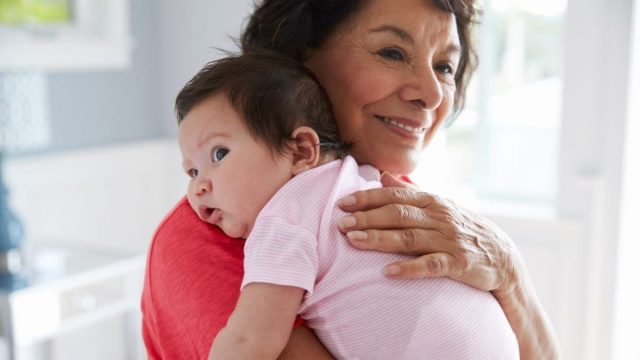If you’ve ever felt like grandma is closer to the grandkids than she was to her own kids, you may not be wrong—and now science can prove it
There’s no denying that there’s just something special about the bond between a grandma and her grandkids. But until now, that was just a feeling we all had—there was no scientific proof that grandmas liked their grandkids more than their own kids, right? A new study out of Emory University actually confirms it—researchers found that grandmas relate to their grandkids in very different ways than their own offspring.
James Rilling, a professor of anthropology, psychiatry, and behavioral sciences at Emory, led the study by measuring the brain function of 50 women with at least one biological grandchild ages 3 to 12. The grandmas in the study were given pictures of their children, grandchildren, and unrelated children and adults, then had their brains scanned while they looked at each photo.
“When grandmothers viewed pictures of their grandchildren, they particularly activated brain regions that have been implicated in emotional empathy, such as the insular and secondary somatosensory cortices,” Rilling wrote in his research, which was published in Proceedings of the Royal Society B.
That’s different from what happened when the grandmas looked at the pictures of their grandkids’ parents.
“When viewing pictures of the grandchild’s same-sex parent, who was often but not always the grandmother’s own adult biological child, they particularly activated areas of the brain involved with cognitive empathy such as the precuneus,” Rilling wrote.
In other words, the pictures of the grandkids evoked feelings of empathy and emotional attachment. The pictures of the parents, who were often the grandmas’ own biological children, evoked feelings of cognitively understanding their thoughts and feelings, but with less emotion.
The reasoning for that super-strong bond between grandmas and grandchildren is still up for debate. But one theory that scientists have had for decades is the “grandmother hypothesis,” which says that human women survive well past their reproductive years specifically so that grandmas can help raise their grandchildren (and give their genes a better chance of surviving long-term). So next time you want to ask grandma to babysit, just know that you have science on your side.











